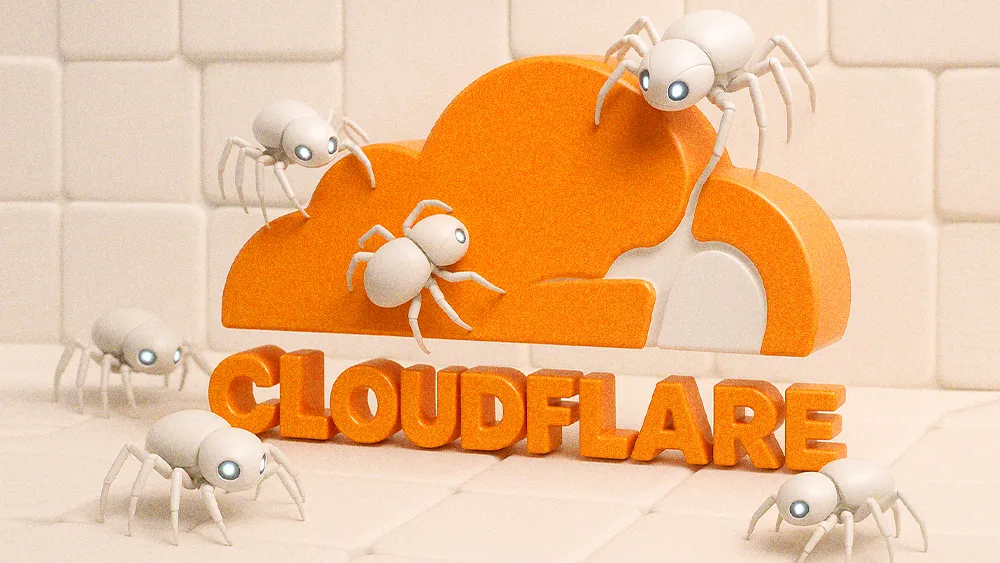
Cloudflare introduced a marketplace for AI companies to pay for data scraping, aiming to monetize web content.
The plan's success depends on convincing bots to comply with payment rules, a challenge given their design to evade detection.
AI security expert Antoine Vastel highlights the risk of fraud, where low-value content could be generated just to be scraped for profit.
The initiative could lead to Cloudflare controlling a significant portion of internet content monetization, raising monopoly concerns.
Why would a scraper start playing by the rules if you can get the content for free?

Antoine Vastel
Head of Research, Castle
As artificial intelligence consumes the internet, a new and ambitious solution has emerged to broker peace between data-hungry AI models and the publishers whose content fuels them. Web infrastructure giant Cloudflare is rolling out a plan to create a marketplace where AI companies can pay for the data they scrape, offering a seemingly elegant way for creators to monetize their work. The proposal promises a new middle ground in the war over web data: instead of simply blocking bots or giving content away for free, websites can now get paid.
But while the plan sounds like a win-win, its success hinges on a difficult, perhaps impossible, proposition: convincing bots to play by rules they have always been designed to break. The real issue isn't the marketplace, but the messy technical reality of enforcement. Can a system of payment truly tame a digital ecosystem built on evasion?
For answers, we spoke with Antoine Vastel, PhD, a leading expert in the cat-and-mouse game of bot detection. As the Head of Research at security firm Castle, Vastel spends his days blocking the very fraudsters Cloudflare now hopes to manage. With a doctorate in browser fingerprinting and a history of writing influential blog posts on detecting automated browsers, he argues that the plan’s greatest challenge is the simple, pragmatic logic of the bots themselves.
Why play by the rules?: For Vastel, the entire monetization model hangs on a question that bots answer with their behavior every day. "Why would a scraper start playing by the rules if you can get the content for free?" he asked. "Most bots won't declare who they are. They will claim to be a normal user and buy proxies, because it's simply cheaper than playing by the rules." This economic reality is compounded by the fact that many AI companies rely on scraping "shady" sources they wouldn't be comfortable admitting to, making transparent payment a non-starter regardless of price.
A history of failure: This isn't the first time a company has tried to broker a truce between publishers and scrapers. Vastel has seen this movie before, and it didn't have a happy ending. "Before Castle, I was working at a company called DataDome... they were working with French newspapers to help these websites monetize their content instead of just blocking the bots," he recounted. "They wanted to make it easy, and it never really took off at the time. They pivoted to more classical bot detection."
Most bots won't declare who they are. They will claim to be a normal user and buy proxies, because it's simply cheaper than playing by the rules.

Antoine Vastel
Head of Research, Castle
While Cloudflare's immense scale gives it a fighting chance where others have failed, Vastel argues the entire model still boils down to a simple cost-benefit analysis for bot developers: "In order to monetize it, they need to make it painful for bot developers to go through their detection so that they're like, 'Okay, I surrender and I will pay,'" Vastel explained. "If it's not good enough, they would just bypass it and take the data."
A new kind of fraud: But success could introduce a different kind of risk: a perverse new incentive for fraud. Vastel paints a clear picture of how it could be exploited: "You could imagine a situation where people generate low-value content, maybe using AI, just to get scraped," he said. "A website might say, 'Okay, 90% of my content is written by journalists and then 10% is just garbage generated by AI just to artificially increase the volume.' I'm pretty sure fraudsters will find a way to exploit it."
A reference price to undercut: The developers and CEOs in Vastel's community who sell scraping services have a telling reaction. "Their reaction is, 'Okay, fine, I don't care,'" he said. "For them, a monetization layer is an opportunity. It establishes a reference price for the content, and as long as they can get it slightly cheaper by bypassing the system, they win."
This cynical view highlights the deep-seated challenges Cloudflare faces. Yet, the paradox is that a company of its size may be the only one capable of even attempting such a solution. This leads to Vastel's ultimate concern.
"I have mixed feelings. Providing mechanisms to monetize content is great in itself," he concluded. "At the same time, what will happen if tomorrow they become the go-to company to monetize content? All of a sudden, Cloudflare can put a lock on 80% of the Internet and decide what to do with it. I don't like this kind of monopoly, but at the same time, it's probably needed to get started."